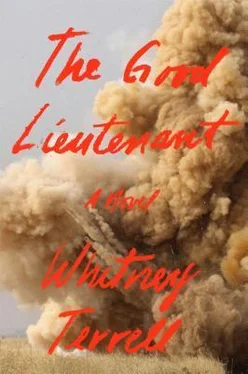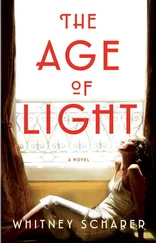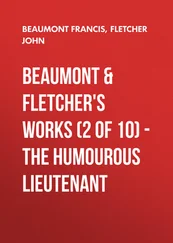Opening her eyes, she had the feeling that the trailer itself, and everything around it, had a purpose, which she couldn’t define but nevertheless was specific, threatening, and directed her way. It was similar to how she’d felt the last time she’d made love to Pulowski, shoving her ass up in the air, as he had stood above her — and later when she’d straddled him, her bare feet planted firmly on the floor and her hands kneading the muscles of his chest — and they were quiet except for their breathing, and they could feel the heat of the day pressing the walls of the trailer, and they could hear other soldiers walking by and talking, separated from them only by the thin skin of the aluminum, by a metal door, by a window with a construction-paper shade — and she would occasionally see a part of Pulowski’s body — an elbow, foreshortened like a wrinkled peach, a foot with its toes flexing, the skin callused at the heel, his belly button, his translucent ear whorling out — and she would be aware of the body parts at the intersection, and the baggies, and the ice, and the GPS. The difference was that with Pulowski she hadn’t been afraid, because his body and her body were the same, whole but penetrated, jumbled but not destroyed, one and the same. But on this night, when she woke up, she was alone, and this time, in the grainy darkness, her aluminum walls and iron-framed bed and plywood floor seemed as impersonal as a prison — hard, bare, and temporary in every way.
* * *
“Remember those shackles I lost back at Fort Riley?” Her platoon sergeant, Carl Beale — whose bad temper she generally tried to avoid while on base — stepped up beside her at the refrigerated drink case in the center of the Dining Facility and they both peered in through frosted glass. “Why’d you bust my ass for giving those away?”
“I trusted you,” she said.
“Bullshit. You didn’t trust me to pick my nose back then.”
“True,” she admitted.
“So how about now?” he said. “You trust me any better? Would you say that I have or have not become significantly less of a dick?”
She evaluated this question. The answer was that Beale had been much less of a dick lately. His reliable combination of bravery and stupidity was something she’d begun to, if not value, then dismiss less completely after he’d helped her save Lieutenant Weazer out at the Muthanna intersection. On the other hand, it would have been real progress if he hadn’t felt the need to bring this up so quickly.
“Since when do you fish for compliments from me, Beale? Are you still upset that the guys dimed you out for playing Kid Rock when we’re on convoy?” She cracked the door of her case — the line of refrigerators was a block long, running down the center of the five-thousand-seat dining facility — and grabbed a Gatorade.
“Aw, fuck, come on with that. What the hell else am I going to play?”
“I’d go more Tom Petty,” Fowler said.
“He su-ucks,” Beale said in a singsong voice.
“Not as much as Kid Rock. But it doesn’t matter what you or I think. It matters what the guys think. You play their music, you aren’t going to have people upset about you playing tunes when we’re outside the wire. Think about that.”
“Okay,” Beale said. He didn’t protest, which was itself a surprise. Instead, he followed her grimly, past a half acre of crowded tables, the flat-screens showing highlights of early season baseball games back in the States. “But I don’t think that’s the real problem here,” he said. “I think the real problem is Muthanna.”
She dumped her tray on the dish conveyor and pushed out through frowzy plastic strips into the blacktop of the DFAC parking lot, the blistering noon air.
“I know you saw what I saw,” he said, following her. “Seacourt shouldn’t have had soldiers at the intersection. That place had no defenses. At worst, we should’ve been setting up T-walls out there, instead of working inside the wire last couple weeks.”
“I thought we were talking about music.”
“And I listened to you, didn’t I?” Beale said. He pointed back into the DFAC as if there would be a statue there, erected to the memorial of his listening. “Maybe our guys legitimately don’t like my taste. But I’m telling you that they’re unhappy about what went down at that intersection. Lots of bitching. Lots of grief. You told me that we do the right thing even when other people aren’t doing it. That’s the Family Values rule, okay? Okay, well, I’m telling you that they all know something isn’t right.”
* * *
Two days later, she left her desk at dusk. The center of Camp Tolerance was a broad, open concrete square bordered by the PX, its lifeless Stars-and-Stripes bunting, the wilted tents of a small hadji rug seller, the barber, the dry cleaner’s. She veered off onto a dirt road that wound its way through truck yards, chain-link fences coiled with vine, the back entrance to the 66th Armor Regiment’s motor pool, where Pulowski was waiting with a thistle blossom pinched between his teeth. Questions like the ones Beale had asked her in the DFAC were usually the kind of thing that she discussed with Pulowski. But she was still afraid to get too graphic about what had happened at the intersection — afraid somehow that she would be tainted by it. “You know what Beale asked the other day?” she said instead, glancing over her shoulder. “He wanted to know if he was ‘still a dick.’”
“What’d you tell him?”
Fowler shrugged, as if the jury was still out. “Depends on the context.”
“Yeah?” He dropped back half a step as two sergeants passed, then pulled her by the elbow through a gap in the fence. It was a small bower: broken fountain, a couple of crumbling benches left over from Saddam days. They kissed and then started walking up a small dirt path that led up a rutted and bushy dirt hill that housed the communications antennas for the camp. “Rough day?” he said. She nodded, took his hand. “Personally, I think if Beale was running the war, he’d start by shooting every adult male over the age of eighteen. So if he’s sucking up to you, he’s probably got a motive. What is it? Muthanna? He pushing to get outside the wire?”
Here it was again, the rotting stink of the intersection. She swung his hand up, sniffed, but smelled only live Pulowski. “Muthanna was a disaster waiting to happen,” she said. “That position was undefended. We’re moving people in and out too regularly. If you think it’s a bad idea to shoot people, maybe the T-walls would’ve helped things.”
“Don’t be naïve.”
“That’s not naïve. It’s just a fact.”
They had climbed far enough up the hill that they had a view over the camp, the dingy Mylar dome of the DFAC, the main highway. They sat down on the edge of the track. Pulowski tucked his forehead against her cheek. “Facts are naïve,” he said.
“So what — I just go along with Seacourt. I just let things suck.”
“I would.” He was still nuzzling her, touching her, playing. “Isn’t that what you always wanted? You want to be pals with Captain Happy? You want to get invited to Seacourt’s house for fucking cocktails and SportsCenter ? Then tuck your head down, suck it up, and stay quiet while they clean up their mistake.”
She should have left it. When they made love, they didn’t play. It felt awkward now for both of them, like they were imitating another couple. But she went along with it, slipping her leg over his, pressing her pelvis down on his lap, kissing him, then like a tease pulling back. “So when we were at Riley,” she said, “it was good for me to think for myself. Good for me not to take any shit from Masterson. Pathetic that I was even marginally interested in impressing Seacourt and Hartz—”
Читать дальше












